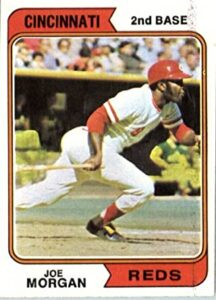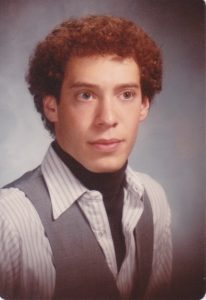Yes, I’m back, dipping my toes cautiously into the social media waters, gauging my mental state. I have a lot going on professionally right now, and I need to write about it, to boost the signal (as the market phrase would have it), to shout it from the virtual rooftops.
And so, I’m venturing back out into the digital world. But you, who have put up with me disappearing now and again, deserve a bit of an explanation for my sudden withdrawal back in early July.
The short version is this: Our older daughter, who has been battling cancer since March 2021, had an unexpected setback. “Unexpected” as in out of the blue. All (or at least almost all) the indicators had been looking pretty good, pointing toward slow but measurable progress. And then one scan — a formality, dotting the “i”s and crossing the “t”s — came back with unambiguously bad results. Bad.
We were devastated, and I needed time. As it happened, at that point in the summer, Nancy and I were preparing for a long stretch of travel, and I would have needed to write several weeks worth of blog posts in advance and schedule them for our time away. I couldn’t do it. I couldn’t bring myself to write a bunch of happy, chatty posts when I was shattered.
Hence, my pull-back.
Our daughter is back in chemotherapy. We’ll find out before too long whether it is working as we hope or if her doctors will need to try something else. In the meantime, she is doing remarkably well. The side-effects of this particular drug are, mercifully, not too terrible. She is working as usual on non-treatment days. She is seeing friends, going to parties, having fun. She is a wonder. A force of nature. Her courage and strength and resilience and determination humble me. I am embarrassed by my own fragility. But I’m a parent and my kid is sick and I can’t do a damn thing to make it all better. Isn’t that what dads are supposed to do? Make it all better? I feel helpless.
But given all she is doing for herself, how can I do any less than step back into the world, be a professional, and live my life as best I can?
So . . . .
I am currently working on my new contemporary Celtic urban fantasy. I have recently revised the first book, The Fugitive Stone, and am now about to submit for editorial feedback the second book, The Demon Cauldron. The third book, The Lost Sword, is about two-thirds written. I’ll be resuming work on it soon.
The Kickstarter for the new set of Zombies Need Brains anthologies is live and it needs your support! We have four anthologies in this year’s set, including Dragonesque, an anthology of stories from the dragon’s point of view, for which I will be writing a story, and Artifice and Craft, an anthology of stories about magical or supernatural works of art that I am editing with my wonderful friend, Edmund R. Schubert. We are halfway to our funding goal, but that leaves us with some fundraising distance to travel in the three weeks we have left. Please, please, please help us out.
I am also continuing to edit on a freelance basis, as I have been for about a year now.
And I am preparing for a couple of upcoming professional events. I will be a guest at this year’s DragonCon, my first appearance at the con since 2018. I can’t wait to get back to our genre’s version of Mardi Gras — it’s always a highlight of my professional year, and it’s been too long. DragonCon takes place in Atlanta, the first weekend of September.
And later in September, I will be an instructor at the Hampton Roads Writers Conference, leading workshops on Point of View, Character Development and Character Arc, World Building, and Pacing and Narrative Arc.
Busy times. Difficult times. But I think that’s true for all of us. We all struggle. We all find ways to cope, to overcome, or at least to distract and scrape by.
I mentioned our travel — Nancy and I went to Colorado, where we had a wonderful visit with our younger daughter and her partner. From there, we went to Boise, to see Nancy’s family. And finally, we spent nearly a week in the area around Bozeman, hiking every day, looking at birds and butterflies, the brilliant hues of wildflowers and mountain vistas that stole our breath. Maybe I’ll post a few photos in the weeks to come.
Thank you for your understanding when I needed to step away from social media. Thank you for the warm, welcoming embrace of your friendship as I return. Going forward, I will try to do better.










 “Aha!!” I was able to reply. “What about Joe Morgan? Two time Most Valuable Player, perennial All-Star, World Series champion. He’s five foot seven!” Besides, I assured them. I didn’t expect or need to be six feet tall. I would be perfectly happy with five foot ten, like my hero, Roy White.
“Aha!!” I was able to reply. “What about Joe Morgan? Two time Most Valuable Player, perennial All-Star, World Series champion. He’s five foot seven!” Besides, I assured them. I didn’t expect or need to be six feet tall. I would be perfectly happy with five foot ten, like my hero, Roy White. February has begun, Punxsutawney Phil has done his schtick, and time seems to be moving at breakneck speed. In a little over two weeks, Invasives, the second Radiants book, will be released by Belle Books.
February has begun, Punxsutawney Phil has done his schtick, and time seems to be moving at breakneck speed. In a little over two weeks, Invasives, the second Radiants book, will be released by Belle Books.